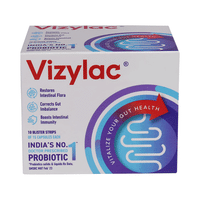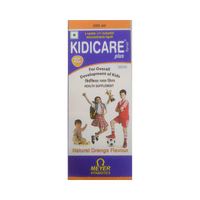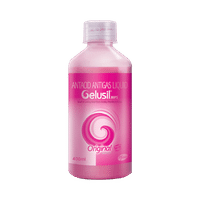Rs.89.30for 1 strip(s) (10 tablet sr each)
food interaction for Rabopep-L
alcohol interaction for Rabopep-L
pregnancy interaction for Rabopep-L
lactation interaction for Rabopep-L
food
alcohol
pregnancy
lactation
Rabopep-L Tablet SR is to be taken on an empty stomach.
Take it preferably 30 minutes before food.
None
Take it preferably 30 minutes before food.
None
CAUTION
Do not drink alcohol while you are taking this medicine. Rabopep-L Tablet SR may cause excessive drowsiness when taken with alcohol.
UNSAFE
Rabopep-L Tablet SR is highly unsafe during pregnancy. It can cause serious harm to the unborn baby, including birth defects and pregnancy loss. Do not use this medicine if you are pregnant or planning to become pregnant.
UNSAFE
Rabopep-L Tablet SR is unsafe to use during breastfeeding. Data suggests that the drug may cause toxicity to the baby.
UNSAFE
SALT INFORMATION FOR Rabopep-L
Levosulpiride(75mg)
Uses
Levosulpiride is used in the treatment of gastroesophageal reflux disease (acid reflux), irritable bowel syndrome, heartburn, schizophrenia and depression.
How it works
Levosulpiride is a atypical antipsychotic. It works by increasing the release of acetylcholine (a chemical messenger). This increases the movement of stomach and intestines, and prevents reflux (acid going up to the food pipe).
Common side effects
Increased prolactin level in blood, Extrapyramidal symptoms, Weight gain, Akathisia (inability to stay still), Increased liver enzymes, Constipation, Insomnia (difficulty in sleeping), Sedation, Maculopapular rash, Hypotension (low blood pressure), Absence of menstrual periods, Ventricular arrhythmia
Rabeprazole(20mg)
Uses
Rabeprazole is used in the treatment of acidity, gastroesophageal reflux disease (acid reflux) and peptic ulcer disease.
How it works
Rabeprazole is a proton pump inhibitor (PPI). It works by reducing the amount of acid in the stomach which helps in relief of acid related indigestion and heartburn.
Common side effects
Headache, Nausea, Vomiting, Abdominal pain, Flatulence, Dizziness, Weakness, Diarrhea, Nervousness, Bronchitis (inflammation of the airways), Sinus inflammation, Sleepiness, Vertigo, Rash, Dryness, Increased liver enzymes, Dermatitis, General discomfort, Decreased white blood cell count (neutrophils), Decreased white blood cell count, Low blood platelets, Increased white blood cell count, Decreased appetite, Depression, Visual disturbance, Stomach inflammation, Stomatitis (Inflammation of the mouth), Taste change, Itching, Sweating, Weight gain
SUBSTITUTES FOR Rabopep-L
32 Substitutes
32 Substitutes
Sorted By
 Rs. 334.31pay 274% more per Tablet SR
Rs. 334.31pay 274% more per Tablet SR Rs. 213.25pay 134% more per Tablet SR
Rs. 213.25pay 134% more per Tablet SR Rs. 117.19pay 31% more per Tablet SR
Rs. 117.19pay 31% more per Tablet SR Rs. 241.40pay 165% more per Tablet SR
Rs. 241.40pay 165% more per Tablet SR Rs. 140.63pay 55% more per Tablet SR
Rs. 140.63pay 55% more per Tablet SR
Expert advice FOR Rabopep-L
- Take it as per dose and duration suggested by your doctor.
- Levosulpiride may cause dizziness. Do not drive or do anything that requires mental focus until you know how this medicine affects you.
- Consult your doctor if you are pregnant, planning to become pregnant or breastfeeding.
- Consult with your doctor immediately if you have absence if periods, abnormal milk secretion or changes in sexual desire, fever, muscle stiffness.
Frequently asked questions FOR Rabopep-L
Levosulpiride
Q. Is levosulpiride safe?
Levosulpiride is safe if used at prescribed doses for the prescribed duration as advised by your doctor
Q. Is levosulpiride an antidepressant?
No, it is used in the treatment of gastro-oesophageal reflux disease, irritable bowel syndrome, psychosis, dyspepsia
Q. What is levosulpiride?
Levosulpiride belong to class of medication called as atypical antipsychotics. It acts by decreasing the activity of dopamine in the brain
Rabeprazole
Q. What is Rabeprazole used for?
Rabeprazole is used for the treatment of stomach and intestinal ulcers (gastric and duodenal ulcers), reflux esophagitis, or gastroesophageal reflux disease (GERD). It works by reducing the amount of acid made by your stomach and thus relieves your symptoms. Rabeprazole also prevents acidity associated with the use of painkillers and stress ulcers in critically ill people. It is also used to treat a disease associated with excessive acid production in the stomach known as Zollinger Ellison syndrome (ZES).
Q. How long does it take for Rabeprazole to work?
Rabeprazole starts working within an hour of taking it and shows maximum benefit within two to four hours. You should start feeling better within 2 to 3 days but it may take up to 4 weeks to relieve your symptoms significantly.
Q. What is the best time to take Rabeprazole?
It is best to take Rabeprazole before your breakfast. If you are taking two doses, take it in the morning and evening. Rabeprazole is more effective when it is taken an hour before your food.






















